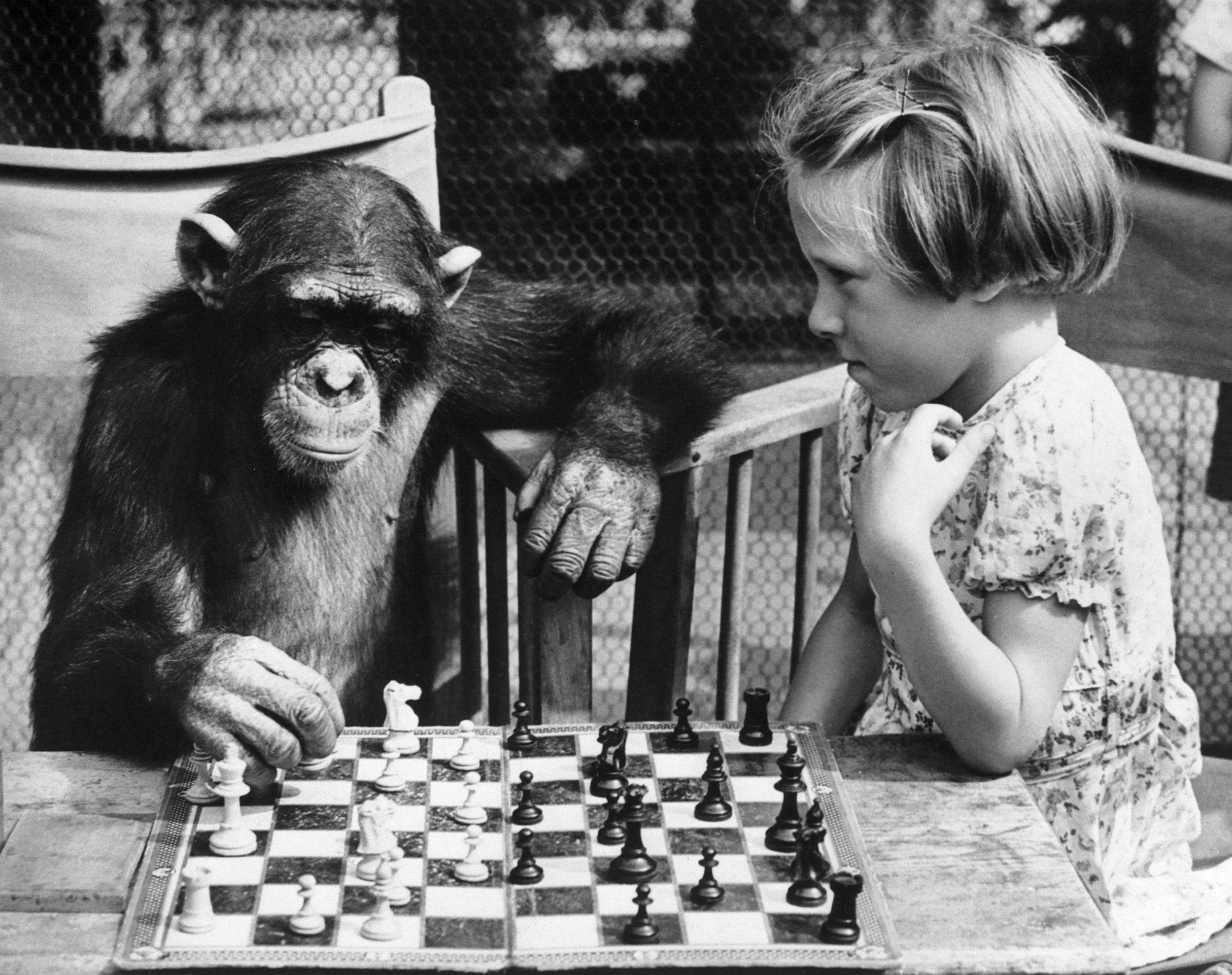Chimpanzees can learn to play Rock, Paper, Scissors, study reveals
Apes are as adept as four-year-old children at age-old hand signal game, researchers say

Your support helps us to tell the story
From reproductive rights to climate change to Big Tech, The Independent is on the ground when the story is developing. Whether it's investigating the financials of Elon Musk's pro-Trump PAC or producing our latest documentary, 'The A Word', which shines a light on the American women fighting for reproductive rights, we know how important it is to parse out the facts from the messaging.
At such a critical moment in US history, we need reporters on the ground. Your donation allows us to keep sending journalists to speak to both sides of the story.
The Independent is trusted by Americans across the entire political spectrum. And unlike many other quality news outlets, we choose not to lock Americans out of our reporting and analysis with paywalls. We believe quality journalism should be available to everyone, paid for by those who can afford it.
Your support makes all the difference.Chimpanzees can learn the rules to the popular hand-signal game Rock, Paper, Scissors, scientists have discovered.
An experiment at the Primate Research Institute at Kyoto University in Japan, revealed that though it took them considerably longer, the apes could learn the game as well as young children.
Lead author Jie Gao, of the Primate Research Institute at Kyoto University in Japan, said: “The study aimed to investigate whether chimpanzees could learn a transverse pattern by being trained in the rules of the Rock, Paper, Scissors game.
“The chimpanzees’ performance was similar to that of four-year-old children. The primary difference between the chimpanzees and children in the present study was the method of learning.
“Children changed their choice immediately after they made a wrong one, whereas the chimpanzees would often take multiple sessions to correct themselves.”
As well as taking the chimps longer to learn the relationship between the signals, they also struggled to grasp that scissors beat paper.
The scientists used seven chimpanzees of various ages and sexes in the experiment.
They were trained to respond to the hand signals on a computer touch-screen, choosing the stronger of two options – just as the game is played.
First the researchers taught the chimps the paper-rock combination, followed by the rock-scissors one, and finally paper and scissors.
The scientists also taught the game to 38 children aged 3-6 to compare the speed of the learning process.

Ms Gao said the findings suggested that “children acquire the ability to learn a circular relationship and to solve a transverse patterning problem around the age of four years.”
She said “the chimpanzees' performance during the mixed-pair sessions was similar to that of four-year-old children.”
The earliest variation of Rock, Paper, Scissors is thought to date from China's Han Dynasty (206BC-AD220).
Join our commenting forum
Join thought-provoking conversations, follow other Independent readers and see their replies
13Comments